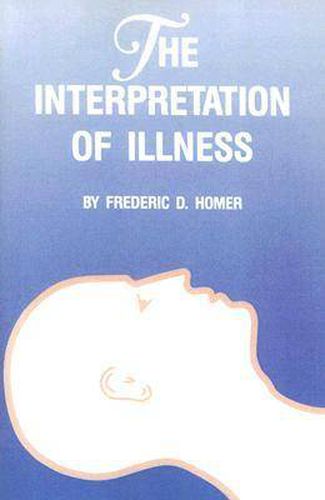Readings Newsletter
Become a Readings Member to make your shopping experience even easier.
Sign in or sign up for free!
You’re not far away from qualifying for FREE standard shipping within Australia
You’ve qualified for FREE standard shipping within Australia
The cart is loading…






Georg Groddeck (1866-1934), who was trained as a physicianbut became famous for his success as a healer, introduced a radical concept inThe Book of It: that we virtually always cause our own illness and injury;therefore, we can cure and avoid both. Groddeck utilized the technique of psychoanalysis - which hadjust been invented by Freud - to communicate with the source of the illness,which he called the the it (or the map of the psyche). He believed the it had the power to cure illness as well as cause it. Perhaps science is catching up with Groddeck’s notion, formodern currents in medicine suggest there is a linkage between the way we live,the way we think, and illness. Readings in behavioral medicine indicate that wedo have control over our immune system; and empirical studies of behavior showa strong relationship between stress and illness. In TheInterpretation of Illness, Homer goes beyond Groddeck’s initial insight toemphasize that illness is a communication to others, especially a call forsympathy. No one consciously likes to be sick or hurt; but we all, consciouslyor unconsciously, tell others about our ills, expecting them to extendsympathy. Homer argues that if we change this pattern of communication - eitherby learning to forego sympathy or by gaining it in less destructive ways - we canprevent illness or alleviate existing symptoms. The change in communicationinvolves expressing ourselves knowingly and deliberately to others. Interpretationis a series of letters from Homer, writing under the persona Augie, to afriend. Appropriately enough, this style is similar to the format used byGroddeck in The Book of the It.
$9.00 standard shipping within Australia
FREE standard shipping within Australia for orders over $100.00
Express & International shipping calculated at checkout
Georg Groddeck (1866-1934), who was trained as a physicianbut became famous for his success as a healer, introduced a radical concept inThe Book of It: that we virtually always cause our own illness and injury;therefore, we can cure and avoid both. Groddeck utilized the technique of psychoanalysis - which hadjust been invented by Freud - to communicate with the source of the illness,which he called the the it (or the map of the psyche). He believed the it had the power to cure illness as well as cause it. Perhaps science is catching up with Groddeck’s notion, formodern currents in medicine suggest there is a linkage between the way we live,the way we think, and illness. Readings in behavioral medicine indicate that wedo have control over our immune system; and empirical studies of behavior showa strong relationship between stress and illness. In TheInterpretation of Illness, Homer goes beyond Groddeck’s initial insight toemphasize that illness is a communication to others, especially a call forsympathy. No one consciously likes to be sick or hurt; but we all, consciouslyor unconsciously, tell others about our ills, expecting them to extendsympathy. Homer argues that if we change this pattern of communication - eitherby learning to forego sympathy or by gaining it in less destructive ways - we canprevent illness or alleviate existing symptoms. The change in communicationinvolves expressing ourselves knowingly and deliberately to others. Interpretationis a series of letters from Homer, writing under the persona Augie, to afriend. Appropriately enough, this style is similar to the format used byGroddeck in The Book of the It.